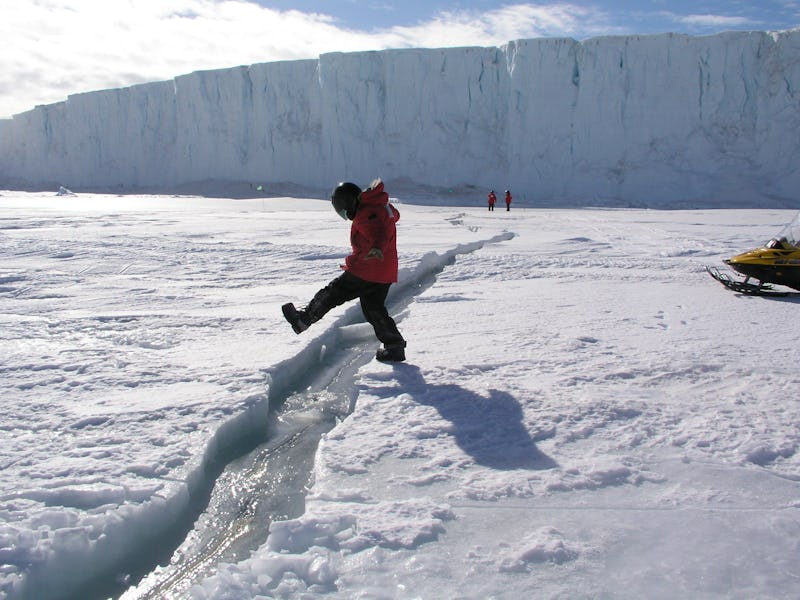An Ice Shelf the Size of Delaware Is About to Collapse
It's only a matter of time.

The Antarctic winter — now coming to a close — is long and dark. And when it ends, a gigantic ice shelf the size of Delaware may break off and crash into the ocean.
The winter is so dark the satellites overhead can’t keep tabs on a crack in the ice as it inches forwards, threatening the stability of one of the continent’s biggest ice shelves, known as Larsen C. A team of scientists with UK’s Project Midas recently got their first look at the rift since that part of Antarctica went dark in March. The results were surprising — the crack had grown by more than 13 miles in that short time, and the rate of growth appears to be accelerating.
Understanding how ice shelves react to a warming environment is crucial to accurate predictions of sea level rise, which is among the more terrifying consequences of climate change. In the recent past, great expanses of Antarctic ice shelf have collapsed quickly and dramatically into the ocean, as neighboring Larsen B did over the span of about a month in 2002.
The crack in Larsen C has grown more than 13 miles since March.
Ice shelves are broad sheets of snow and ice that are still attached to the continent but sit out over the ocean. If they thin and weaken, they will eventually calve off as icebergs and float away. The calving event itself does not contribute directly to rising seas, since the shelves already sit over the ocean and displace their weight within it.
Still, ice sheets play a valuable role in holding back the progress of flowing glaciers behind them. When this ice moves from hard ground to ocean, it contributes to global sea levels. A full collapse of Larsen C could ultimately contribute about an inch to rising ocean — about ten years worth of rise at current rates, Paul Holland with the British Antarctic Survey told Motherboard.
The rift in Larsen C is growing longer and wider at an increasing rate.
The current crack in Larsen C threatens to calve a section of the shelf representing about 10 percent of its total area, nearly as big as Delaware. If that happens, the entire shelf behind it could become destabilized and begin to calve off as well. That could spell the beginning of the end for the largest ice shelf on the Antarctic peninsula.
These changes are irreversible on any timescale relevant to a human lifespan, and will result in dramatic changes not only in Antarctica but anywhere the land meets the sea. Maybe rethink that oceanfront condo.